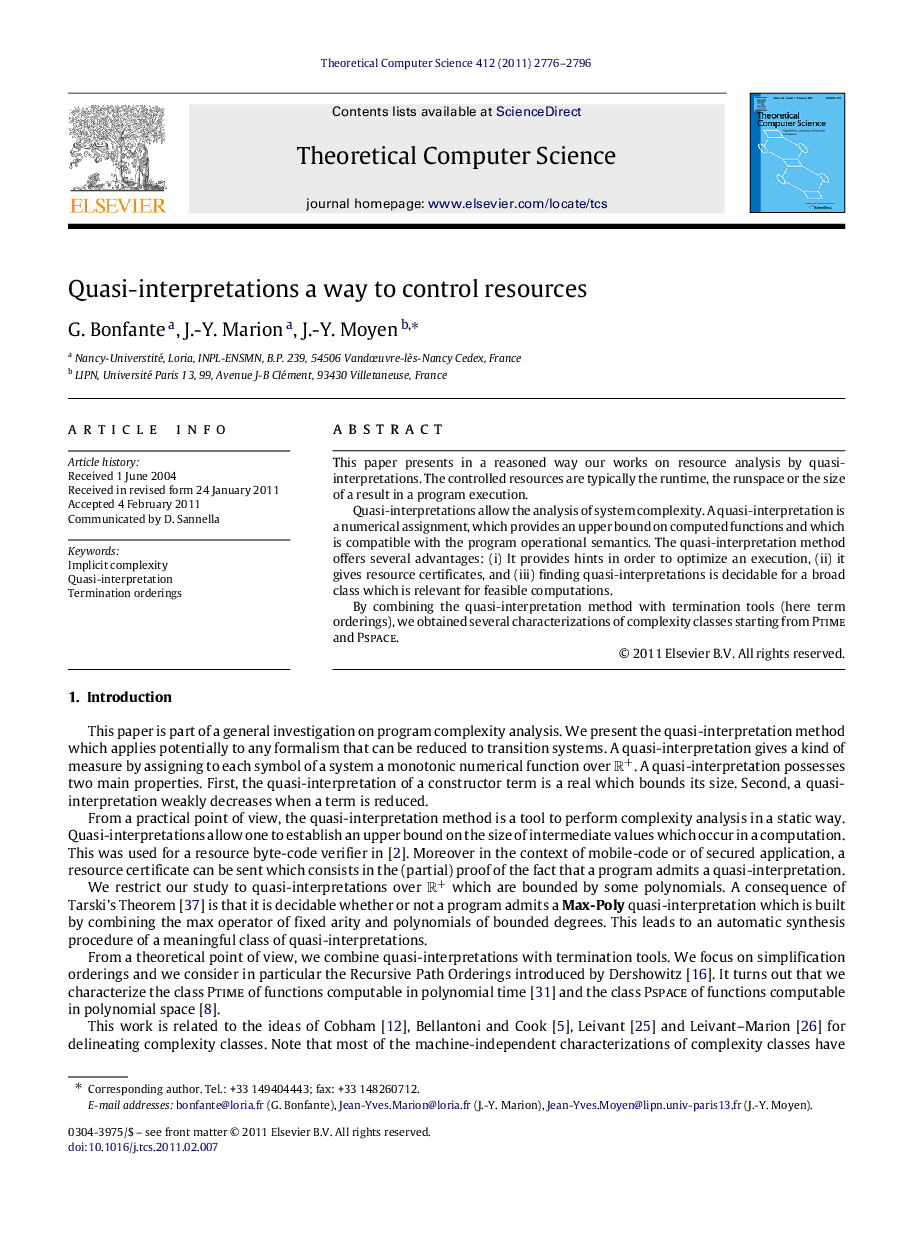| Article ID | Journal | Published Year | Pages | File Type |
|---|---|---|---|---|
| 435014 | Theoretical Computer Science | 2011 | 21 Pages |
This paper presents in a reasoned way our works on resource analysis by quasi-interpretations. The controlled resources are typically the runtime, the runspace or the size of a result in a program execution.Quasi-interpretations allow the analysis of system complexity. A quasi-interpretation is a numerical assignment, which provides an upper bound on computed functions and which is compatible with the program operational semantics. The quasi-interpretation method offers several advantages: (i) It provides hints in order to optimize an execution, (ii) it gives resource certificates, and (iii) finding quasi-interpretations is decidable for a broad class which is relevant for feasible computations.By combining the quasi-interpretation method with termination tools (here term orderings), we obtained several characterizations of complexity classes starting from Ptime and Pspace.
